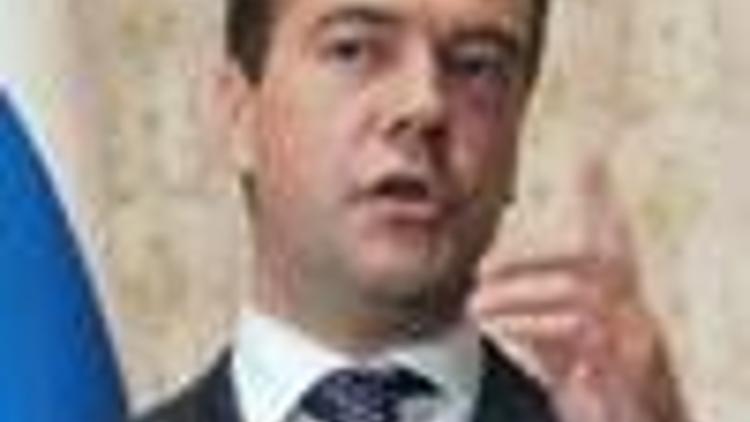Hurriyet English with wires
Oluşturulma Tarihi: Ağustos 29, 2008 10:04
Russian officials promised on Friday they would not cut oil flows to Europe in response to threatened sanctions, a step Moscow says it has never taken even in the worst moments between Russia and the West. (UPDATED)
The Russian government had told at least one of its oil companies to prepare for a possible cut in shipments to Europe in days in response to threatened sanctions and that LUKOIL was a likely recipient, UK newspaper Daily Telegraph reported citing a single unidentified source on Thursday.
�
As Europe prepared its response to Russia's invasion of neighboring Georgia, Deputy Prime Minister Igor Sechin, the chairman of Russia's largest oil company Rosneft, called the suggestion of possible cuts a "crude provocation".
�
"Even during the Cold War, regardless of political or any other circumstances, the Soviet Union always fulfilled its contractual obligations to supply Europe with energy, and Russia, a responsible and reliable partner, adheres to the same principle," state news agency RIA quoted Sechin as saying.
�
Russia's energy minister said Moscow was doing everything it could to ensure stable oil supplies on its key supply line to Europe, the Druzhba (Friendship) pipeline.
�
"We are doing everything we can so Druzhba can keep working stably and supply European consumers with enough oil," Sergei Shmatko told reporters in Dushanbe, the capital of Tajikistan.
"LUKoil is delivering the same amount of oil and oil products to Western Europe as before," Reuters quoted a LUKoil spokesman as saying. "We have received no orders from the government."
Reports had begun to circulate in Moscow that Russian oil companies are under orders from the Kremlin to prepare for a supply cut to Germany and Poland through the Druzhba (Friendship) pipeline.
Speculation of cuts hit the dollar and supported its decline against other major currencies, while U.S. oil prices rose 1 percent due to the approach of Tropical Storm Gustav towards the Gulf of Mexico.
Any move would be timed to coincide with an emergency EU summit in Brussels, where possible sanctions against Russia are on the agenda, and would be a dramatic escalation of the Georgia crisis.
HISTORY OF SUPPLY CUTS
Russia has repeatedly restricted oil and gas deliveries over recent years as a means of diplomatic pressure, though Moscow usually explains away the reduction by referring to technical upsets or pipeline maintenance.
In July, deliveries to Czech Republic through the Druzhba pipeline were cut after Prague signed an agreement with the U.S. to install an anti-missile shield. Czech officials say supplies fell 40 percent for July. The pipeline managers Transneft said the shortfall was due to "technical and commercial reasons".
Supplies were cut to Estonia in May 2007 following a dispute with Russia over the removal of Red Army memorials. It was blamed on a "repair operation".
Latvia was cut off in 2005 and 2006 in a battle for control over the Ventspils terminals. "There are ways to camouflage it," said Vincent Sabathier, a senior fellow at the Centre for Strategic and International Studies in Washington.
London-listed LUKoil is run by Russian billionaire Vagit Alekperov, who holds 20 percent of the shares. LUKoil produces 2 million bpd, or 2.5 percent of world supply. It exports one fifth of its output to Germany and Poland.
Russia exports roughly 6.5 million bdp, supplying the EU with 26 percent of its total oil needs and 29 percent of its gas.


